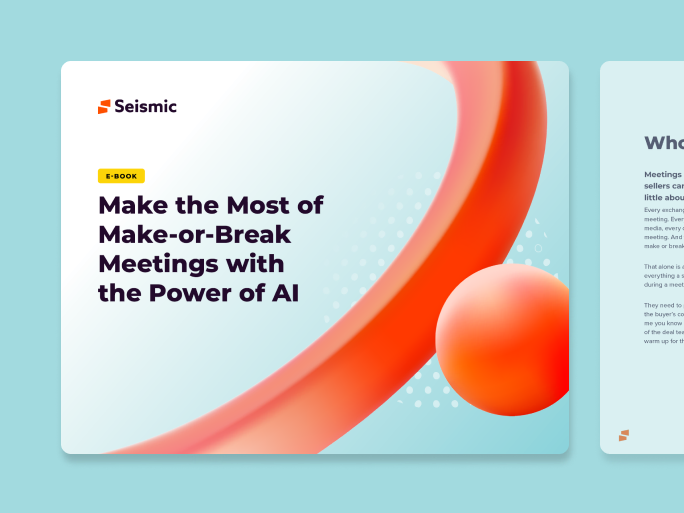What is an AI sales assistant?
An AI sales assistant is a software application that utilises AI technologies like machine learning (ML) and natural language processing (NLP) to support and improve the sales process. AI for sales assists sellers with various tasks, enhances their day-to-day activities, and streamlines workflows. AI sales software relies on ML algorithms, predictive analytics, and generative AI to provide data-driven insights, automate tasks and workflows, and improve overall efficiency in the sales cycle.
How to use AI for sales
When considering how to use AI in sales efforts, the possibilities may seem overwhelming. To get started, focus on your most critical workflows and then expand your use cases over time. How AI is used in sales will vary by organisation, but the following examples are common uses to consider.
Analyze large datasets
Stronger and faster than a human brain, an AI sales assistant can analyse vast amounts of data from several sources, such as CRM systems, marketing databases, web analytics, and customer interactions, helping sellers quickly make informed decisions. These insights can be used to improve the accuracy of sales forecasts, track performance, segment customers, and understand the competition — all without the need for manual work.
Uncover patterns
By analysing large datasets, sellers can easily uncover patterns and apply those learnings to refine sales strategies. These actionable insights, once previously impossible or too complex to decipher, are key examples of how AI can help in sales and optimise strategies to increase revenue.
Automate mundane tasks
Every organisation wants to give sales reps more time to focus on high-value activities that contribute to customer satisfaction and drive growth. AI tools for sales can automate mundane tasks like sending follow-up emails based on predefined templates and triggers and generating sales forecasts using predictive analytics and historical data, saving time and improving efficiency.
Answer customer questions
Finding an answer can be time-consuming and, despite best efforts, the result may still be false or inaccurate. But with an AI sales assistant, tracking down the answer to a customer question is considerably easier. Sales reps can find the right information and approved customer-facing resources fast, helping them provide accurate and personalised customer service.
Get content recommendations
Surface content recommendations for go-to-market (GTM) teams by integrating an AI sales assistant with your sales content management system. AI technology can provide contextual recommendations based on the buyer information and sales stage, enabling personalised customer interactions and higher customer satisfaction.
Analyze conversations
Turn daily customer conversations into valuable insights. AI assistants can transcribe and analyse conversations to generate summaries, key takeaways, and customer sentiment, providing sales reps and leaders with the intelligence needed to optimise strategies and improve the customer experience.
Accelerate deals with AI-powered meeting data

Examples of AI sales tools
Seismic recently surveyed 1,400 leaders in sales, enablement, and customer success across the globe to find out how fundamental AI technology is to their GTM efforts. A whopping 93% of enablement tech users say AI is driving their future investments, and 91% say AI improves agility and speed to market. What’s clear is that global GTM leaders believe that investing in AI sales tools will positively impact business outcomes and bolster their future success.
By now, you may be wondering, “Where do I begin?” Once you decide how you’ll use AI in your GTM motions, it’s critical to select the AI tools for sales that will support your unique needs. While there is no magic formula for choosing the best AI tools for sales, the following are examples of tools that support distinct phases of the sales process:
- Chatbots and virtual assistants: Through a web chat interface, chatbots use machine learning and natural language processing (NLP) to engage in conversations with customers in real-time, answering questions, qualifying leads, and helping them progress along the customer journey. Virtual assistants, powered by NLP, support business activities like scheduling meetings and setting reminders. A popular AI sales bot is ChatGPT, and well-known virtual assistants include Amazon’s Alexa and Apple’s Siri.
- Predictive analytics and lead scoring: Using AI for sales prospecting is becoming increasingly popular. Predictive lead scoring technologies like MadKudu, OutFunnel, and 6sense use AI to provide accurate predictions of which leads have a high probability of converting, helping sales reps prioritise leads and focus on the most promising accounts. The software assigns a score by analysing historical data, considering many factors, including buyer behaviour, demographics, and engagement levels. By pursuing high-quality leads, organisations can experience higher conversion rates and increase revenue.
- Sales engagement platforms: Platforms like Salesloft, Microsoft Sales Copilot, and Outreach Sales Execution serve as a hub for sales activities like email outreach and phone calls, in addition to deal workflows. These tools help sellers determine which prospects to interact with, the optimal timing for engagement, and what to say, all while capturing and tracking sales activities.
- Conversational intelligence: A conversational intelligence platform uses AI and machine learning to capture voice and text data and combine it with sentiment analysis to help organisations better understand customer interactions. As noted in the section above, organisations can use this technology to transcribe and analyse customer interactions such as emails, calls, and chats, helping sellers improve communication skills, understand customer needs, anticipate concerns, and address them preemptively. Leading vendors in the conversational AI for sales market include Gong, IBM, Microsoft, Google, and AWS.
- Sales forecasting: Sales forecasting tools use AI algorithms to analyse relevant information like sales data and trends to accurately predict pipeline volume and forecast the likelihood of closing. This helps organisations project revenue, understand pipeline health, and identify opportunities and risk, providing the intelligence to refine strategies and achieve targets. Examples of sales forecasting tools include Salesforce, Clari, and Zendesk.
Ready to harness the power of AI?
How Seismic’s platform leverages AI sales tools
Using an AI sales assistant has quickly evolved from a trend to a new way of doing business that is transforming the entire sales process. Many use cases and technologies are available to help organisations improve sales motions, with seemingly small changes yielding big results.
As an early adopter of AI, Seismic began leveraging AI in 2015 to help GTM teams maximise their potential. Over the years, our platform has continued to adapt, providing sellers with support ranging from contextual information and just-in-time intelligence to AI-generated lessons, meeting preparation, and support on mundane tasks. The recent introduction of Seismic Aura in 2021 and Seismic for Meetings and Seismic for Microsoft Sales Copilot in 2023 demonstrates our commitment to innovation in AI-powered enablement.
- Seismic Aura is the engine that powers the AI features in the Seismic Enablement Cloud™ (EN). Seismic Aura analyses large and complex data sets, giving sellers insights and context-driven recommendations that are personalised for every opportunity.
- Seismic for Meetings centralises meeting activities, enabling sellers to personalise content, present, and follow up with prospects and customers all in one tool. The platform uses AI to generate post-meeting summaries, suggest relevant materials to share after the meeting, and provide valuable analytics for sellers and managers on content usage, sales behaviours, and emerging conversation themes.
- Seismic for Microsoft Sales Copilot helps organisations streamline workflows and provides sellers with contextual information such as content and training recommendations within the Microsoft tools they already use daily.
Regardless of where you are in your journey with AI technology, Seismic is here to help. If you’d like to learn more about AI sales tools in enablement, please request a demo.



